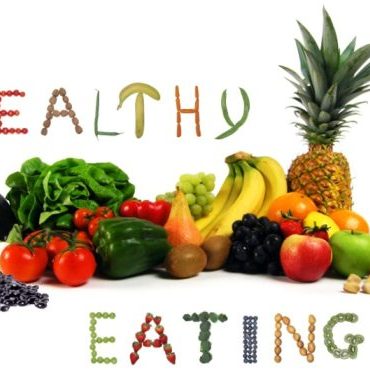 Arlene provides answers about how to tackle depression when it is a symptom of Polycystic Ovary Syndrome, gestational diabetes, dieting and tea & coffee.
Arlene provides answers about how to tackle depression when it is a symptom of Polycystic Ovary Syndrome, gestational diabetes, dieting and tea & coffee.
How can I lower my cholesterol? I have been told my cholesterol is a bit high at 5.5. I believe I eat fairly healthy and am not overweight at 62kg height 165cm. Can you give me some ideas on how to lower it? My doctor wants it to be under 5.
Too much cholesterol in the blood can lead to heart disease and stroke. You can reduce your cholesterol by eating healthful foods, losing weight if you need to and being physically active. Some people also need to take medicine because changing their diet isn’t enough. Most heart and blood vessel disease is caused by a build-up of cholesterol, plaque and other fatty deposits in artery walls. The arteries that feed the heart can become so clogged that the blood flow is reduced, causing chest pain. If a blood clot forms and blocks the artery, a heart attack can occur. Similarly, if a blood clot blocks an artery leading to or in the brain, a stroke results.
It is important that you make changes to your eating patterns. Focus on low-saturated-fat, trans-fat-free, low-cholesterol foods such as these:
• A variety of deeply coloured fruits and vegetables
• A variety of fibre-rich grain products like whole-grain bread, cereal, pasta and brown rice.
• Fat-free, 1 per cent and low-fat milk products
• Lean meats and poultry without skin
• Fatty fish
• Nuts, seeds, and legumes
• Unsaturated vegetable oils like canola, corn, olive, safflower and soybean oils
What should I limit? Trans fats and saturated fats
• Whole milk, cream and ice cream
• Butter, egg yolks and cheese — and foods made with them
• Organ meats like liver, sweetbreads, kidney and brain
• High-fat processed meats like sausage, bologna, salami and hot dogs
• Fatty meats that aren’t trimmed
• Duck and goose meat (raised for market)
• Bakery goods made with egg yolks, saturated fats and trans fats.
• Saturated oils like coconut oil, palm oil and palm kernel oil
• Solid fats like shortening, partially hydrogenated margarine and lard
• Fried foods
What are some cooking tips?
• Use a rack to drain off fat when you broil, roast or bake.
• Don’t baste with drippings; use wine, fruit juice or marinade.
• Broil or grill instead of pan-frying.
• Cut off all visible fat from meat before cooking and take all the skin off poultry pieces.
• Use a vegetable oil spray to brown or sauté foods.
• Serve smaller portions of higher-fat dishes, and serve bigger portions of lower-fat dishes like pasta, rice, beans and vegetables.
• Make recipes or egg dishes with egg whites or egg substitutes, not yolks.
• Instead of regular cheese, use low-fat cottage cheese and other fat-free or low-fat, low sodium
cheeses.
 What is Gestational Diabetes?
What is Gestational Diabetes?
Gestational diabetes occurs during pregnancy. When gestational diabetes is well controlled, the risks to the baby and mother are greatly reduced. Women are at greater risk of developing type 2 diabetes after experiencing gestational diabetes. Gestational diabetes is diagnosed using an oral glucose tolerance test (OGTT). After the baby is born, the mother’s blood glucose levels usually return to normal.
Diabetes is a common condition in which there is too much glucose in the blood. The pancreas either cannot make insulin or the insulin it does make cannot work properly to control the level of glucose in the blood. Insulin is a hormone that is needed to transport glucose from the bloodstream into cells where it is needed for energy. Between three and eight per cent of pregnant women will develop gestational diabetes. It is usually detected around weeks 24 to 28 of pregnancy, though it can develop earlier. Being diagnosed with gestational diabetes can be both unexpected and upsetting.
It can raise questions such as:
Will my baby be affected?
Will I have diabetes for the rest of my life?
What do I need to do to manage this condition?
Various health professionals will be involved in helping you manage gestational diabetes. You will be given information about how to test and monitor blood glucose levels, as well as dietary advice from a dietician. Working closely with your doctor and healthcare team can help you to lower your blood glucose levels and keep them within the normal range.
Certain women are at increased risk of developing gestational diabetes. High-risk groups include:
Women over 30 years of age
Women with a family history of type 2 diabetes
Women who are overweight or obese
Aboriginal and Torres Strait Islander peoples
Women of particular cultural groups, such as Indian, Chinese, Vietnamese, Middle Eastern, Polynesian and Melanesian women
Women who had gestational diabetes in a previous pregnancy.
The placenta produces hormones that help the baby to grow and develop, but these hormones can also interfere with the action of the mother’s insulin. This is called insulin resistance. As the pregnancy progresses, the mother’s energy needs increase and her insulin needs are also higher than normal. Some women are unable to produce extra insulin and blood glucose levels rise.
When the baby is born, the mother’s need for insulin returns to normal and diabetes usually disappears. When the mother has gestational diabetes glucose crosses the placenta from mother to baby to meet the energy needs of the developing baby. If the mother’s blood glucose levels are raised, a greater amount of glucose crosses the placenta to the baby. To manage this extra amount of glucose, the baby produces more insulin. This can cause excessive growth and fat in the baby. If the mother’s blood glucose levels remain raised, the baby may be larger than normal. Following delivery, the baby may experience low blood glucose levels, particularly if the mother’s blood glucose levels were raised before the birth. Gestational diabetes can be monitored and treated and if well controlled, these risks are greatly reduced. The baby will not be born with diabetes.
Symptoms of gestational diabetes
Gestational diabetes usually has no obvious symptoms. If symptoms do occur, they can include:
- Unusual thirst
- Excessive urination
- Tiredness
- Thrush infections.
- Diagnosis of gestational diabetes
Most women are diagnosed using a special test, which requires a blood sample to be taken after a glucose drink. These tests are usually performed between 24 and 28 weeks into the pregnancy, or earlier if the woman is at high risk.
There are two types of tests:
Glucose challenge test (GCT) – blood is taken and the glucose level is measured one hour after the drink. If this is above normal, an oral glucose tolerance test is required.
Oral glucose tolerance test (OGTT) – involves taking a blood sample after the woman has fasted overnight, A second blood sample is taken two hours after the woman has had a drink containing 75 grams of glucose. A diagnosis is based on the results of the OGTT.
Diagnosis of gestational diabetes is made if the fasting blood glucose is raised or the two-hour blood glucose is raised.
 My main Polycystic Ovary Syndrome (PCOS) symptom is depression, what is the best treatment?
My main Polycystic Ovary Syndrome (PCOS) symptom is depression, what is the best treatment?
I’ve tried seeing a counsellor and I am on anti-depressants, but since PCOS is a hormonal imbalance should I be on some sort of hormonal treatment instead?
It seems that there is a strong link between androgen excess, insulin resistance and depression.
One study found that women who suffer the symptoms of androgen excess (which are pretty much the symptoms of PCOS) are more likely to struggle with depression than women without PCOS.
They also found that carbohydrate craving, excess hair and weight gain impact our well-being and interfere with daily life!
Another article links depression to insulin resistance. We know that PCOS is primarily thought to be an endocrine disorder with irregularities in insulin and carbohydrate processing. Not all women with PCOS are insulin resistant but many are. So, if you do have insulin resistance, you are also more likely to suffer from depression or mood disorders.
So, the bottom line is that if you are suffering from depression with PCOS, you are not alone and it is not all in your head. Depression is another facet of this multi-faceted syndrome.
Now that we’ve established that depression is indeed linked to PCOS, let’s look at how you can manage it so that you can live the life of joy, colour and sunshine we are meant to live.
One of my clients with PCOS suffered from severe depression. She also had untreated PCOS. She was on anti-depressants for a year and saw little improvement in her mood. Her mood only normalized when her PCOS was treated and she remained stable even when she stopped taking anti-depressants.
It is important to treat your PCOS. I’m not saying that you should not take anti-depressants if you are depressed – you need to be led by your doctor (remember that I am not a doctor and you need to seek medical help if you are suffering from depression). I am saying that treating your PCOS may hold an invaluable key to overcoming your depression.
Lifestyle change is often recommended as the first course of treatment in the management of PCOS. By lifestyle changes, we often refer to a change in diet and more regular exercise. Lifestyle changes have also been shown to have a significant improvement in mood and depression in women with PCOS. One study found that if women followed a PCOS diet and exercised, they would see a significant improvement in their mood as well as other symptoms of PCOS.
Diet seems to be the foundation of any sort of intervention! If you can lower insulin levels and improve insulin sensitivity; you should be able to improve androgen levels. This will lead to improvement in all of our PCOS symptoms, including depression.
Recent research has shown that following a low carb, high protein (LCHP) diet improves mood significantly more than following a low protein, high carb (LPHC) diet. The researchers divided women into two groups, one following the LPHC diet and the other following an LCHP diet. The women followed the diet for 16 weeks. What is key here is that neither group lost weight so improvement in their mood wasn’t down to that. Maybe it had to do with the fact that insulin levels tend to be lower and more manageable on a high protein, low carb diet?
Certain supplements are recommended but this is more alternate and there is no scientific basis for this. Omega 3 – has been shown to lower testosterone in women with PCOS and improved testosterone levels = improved mood.
Vitamin D – The sunshine vitamin is important in insulin sensitivity and mood.
Eating a good PCOS diet and taking regular exercise helps the battle of depression making the mood more stable.
If you are suffering from PCOS and depression, it really may be worth your while changing your diet and making sure you’re doing some exercise, as well as taking your supplements. It is possible to find your spring in your step and see colour in your days!
 A lot of people are on a diet in our office so we can look decent in costumes this summer. But this one woman, Marcia, keeps bringing in biscuits, fudge, you name it. She says she loves to bake and wants to share her creations, but I think this is deliberately cruel, considering that she knows we are all dieting. Can I tell her not to bring the stuff anymore?
A lot of people are on a diet in our office so we can look decent in costumes this summer. But this one woman, Marcia, keeps bringing in biscuits, fudge, you name it. She says she loves to bake and wants to share her creations, but I think this is deliberately cruel, considering that she knows we are all dieting. Can I tell her not to bring the stuff anymore?
A wise man once said, “I can resist everything except temptation.” The problem is not really Marcia’s, but your inability to just walk past her plates of goodies – though I feel your diet pain. Tell Marcia the truth, but sugar-coat it a little: Simply say that her biscuits are so delicious, they are derailing everyone’s efforts to lose weight. Don’t tell her that you think her offerings are intentional sabotage. Hopefully, once she gets a compliment, she will back off – and you can get back on track.
I read recently that just smelling or thinking about foods, particularly high carbohydrate foods can cause you to put on weight. Please – say it isn’t so!
The smell and think diet is a wonderful diet to lose tons of weight! Smelling or thinking of food might make your mouth water and increase your desire for the food, but it is impossible for it to make you gain weight without consuming the calories the foods contain. So smell all the foods you feel like eating if this helps satisfy your cravings – thank goodness no harm is done!
Tea and coffee are not mentioned in your menus on your website www.arlenesway.com.au. Are we allowed to have these beverages? I drink two cups of tea every morning with breakfast with no sugar and skim milk. Then I have one cup of coffee at morning tea with no sugar and skim milk. I would really miss my tea and coffee, and I don’t drink much of them as you can see. Also, as I drink only skim milk, can I have more in the daily allowance? Or does the two cups mean skim milk as well as low-fat milk?
Tea and coffee are permitted – and the quantities you are consuming are acceptable. Two cups of milk are the daily allowance – whether skim milk or low fat. You should consume at least two dairy products a day to satisfy your calcium requirement to prevent loss of bone density which could lead to osteoporosis in the future.
My family and I are doing the new weekly diet. We were wondering how many calories are daily in your diet plan. We have been on the menus for 3-weeks and have so far done very well.
I do not want you to concern yourself with calories. I am trying to get you into normal eating habits where you consume a balanced diet. I want you to be aware of portion sizes so that your stomach gets accustomed to smaller quantities. Your food must be tasty so that you enjoy every mouthful. Consider the eating and exercise program a lifestyle, which you should adhere to forever.

